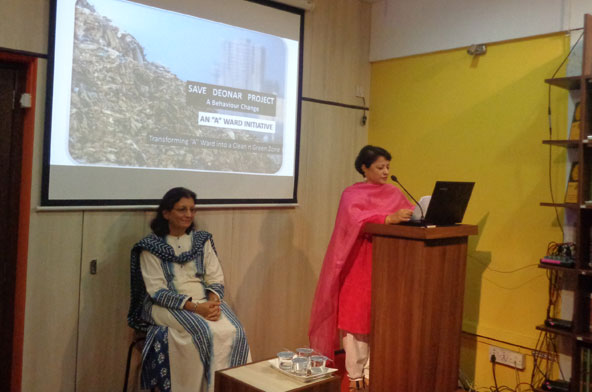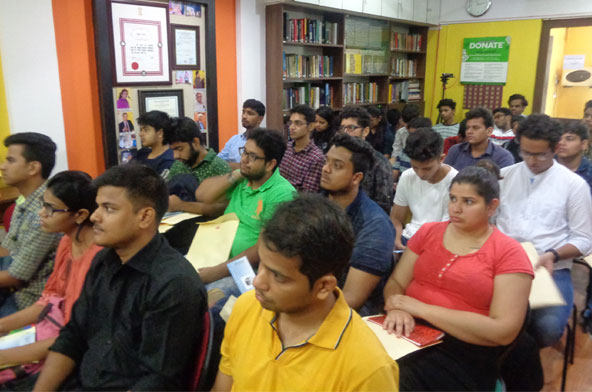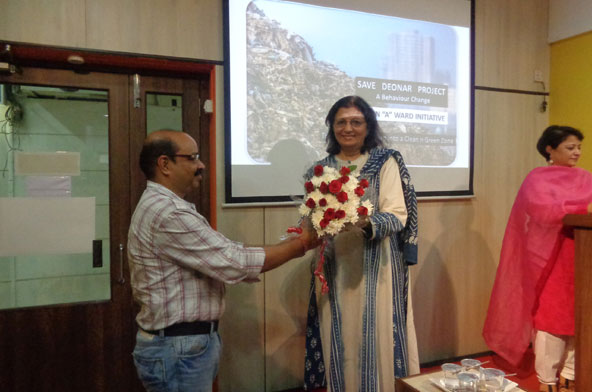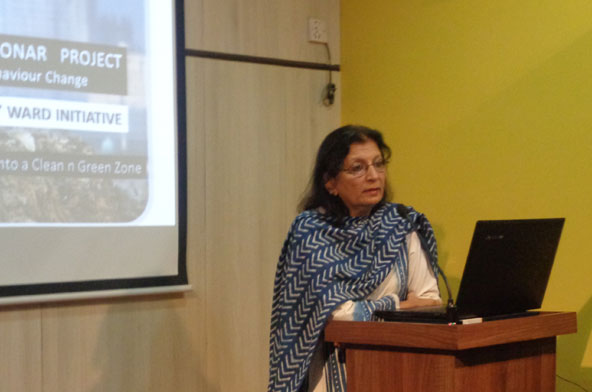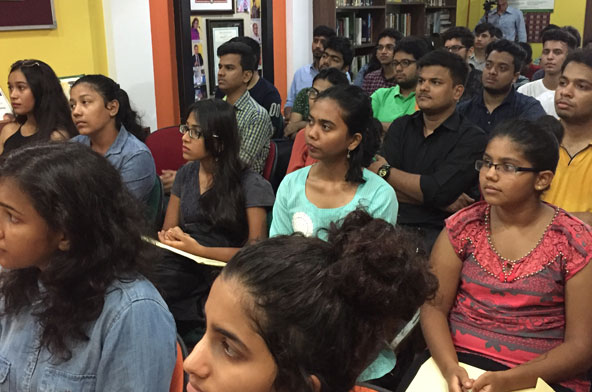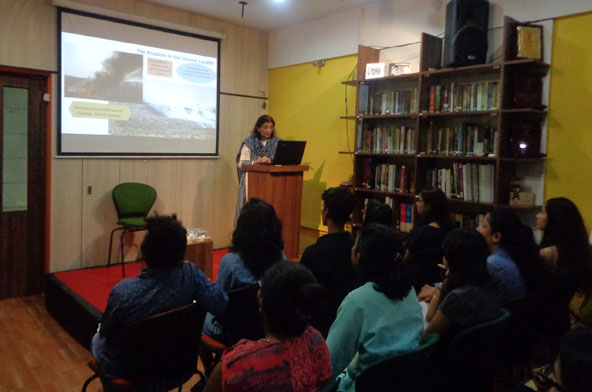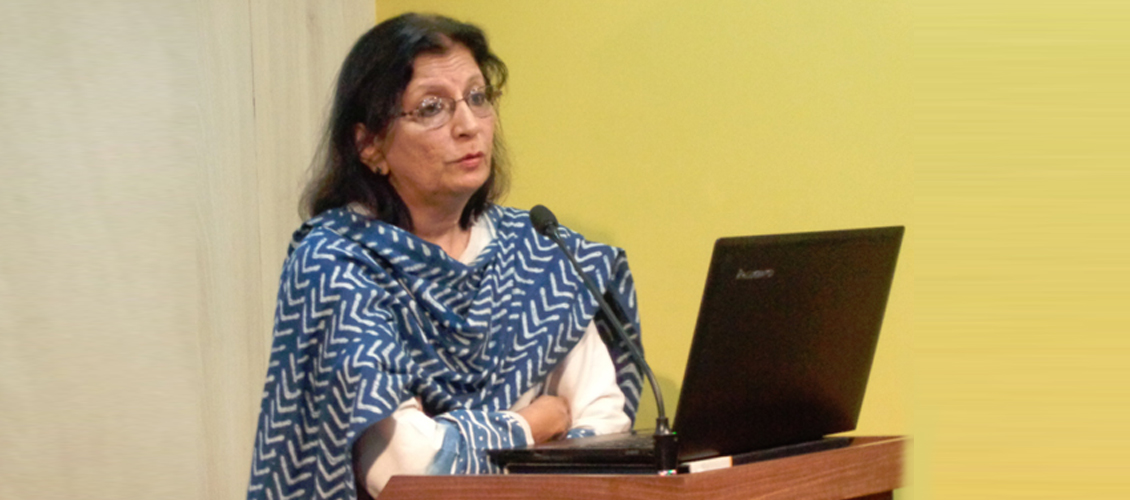
A firm believer in ‘Youth is the Asset of the Nation’, Kunti Oza, founder of the Clean Mumbai Foundation, spoke to an enthusiastic batch of 40 students at Moneylife Foundation, and urged the youth to bring the change the nation as a whole requires — a cleaner and greener surrounding.
A passionate campaigner for sustainability and civic issues, Ms Oza has many successes to her credit. Undertaking various projects, which promote betterment of the environment, and encouragement of a healthy lifestyle, her Clean Mumbai Foundation worked for the beautification of A-Ward area, through socially and environmentally sustainable methods.
In 1992, she was working with Cathedral Infant School, which was situated opposite a garbage collection point. The stench was terrible and attracted hordes of flies.
Ms Oza met the Municipal Commissioner and worked out a route for garbage trucks and covering these open trucks, which were spilling garbage on roads on their way to the dumping grounds. The Commissioner then acted to solve the problem.
Wanting to adapt the practice in international countries, where the concept of green bins and closed garbage trucks prevailed, Ms Oza says she had to wait from 1992-2005, for her idea to materialise as BMC was short of funds.
In her presentation, Ms Oza showed the youngsters graphics of a horrendous fire, which took place in Deonar dumping ground, as well as other images of Mumbai’s pitiable condition of roads.
Ms Oza says to stop such practices, people should be made to understand the concept of non-biodegradable and biodegradable waste. The term ‘biodegradable’ is used for those things that can be easily decomposed by natural agents like water, oxygen and ultraviolet rays of the sun. Those materials, which cannot be broken down or decomposed into the soil by natural agents are labelled as non-biodegradable.
A simple but beautiful concept, of reducing the waste reaching the dumps was explained, which included classifying waste as wet waste and dry waste, to encourage the practice of recycling and relieving the BMC of some burden. The young participants at the session were told they could click pictures of clogged roads and post them on the Swachh Bharat Mission app.
Eco-care earth machines, which processed up to 200 kgs of waste every day, setting up of recycling centres around the city and making a contribution in the generation and usage of compost, were some of the ideas presented at the session.
Her speech spurred the idea of working collectively in small groups or joining hands with her association to solve such problems.


